Introducing solids to your breastfed baby? And just when breastfeeding was so easy. It’s easy to feel overwhelmed at the prospect, but don’t worry. This blog will help you understand how to balance breastfeeding with food. It’s a lot easier than you think!
When should I introduce solids to my breastfed baby?
Breastmilk provides everything your baby needs for the first six months. And exclusive breastfeeding means not giving your baby any other food or drinks other than breast milk.
The World Health Organisation (WHO) recommends exclusive breastfeeding for six months, followed by breastfeeding alongside solid foods for two years or more. Or as long as you both want.
Most health organisations recommend solids at or about SIX MONTHS so that you and your baby can gain the greatest protection from 6 months of exclusive breastfeeding.

READ MORE: I’m confused when is my baby ready for solids?
The critical thing is watching your baby to see if they can:
- Sit up with minimal support
- Reach and grab for food
- Keep their head steady
When your baby can do ALL 3 of these things, they are ready for solids. For most babies, this will be at or around six months of age.
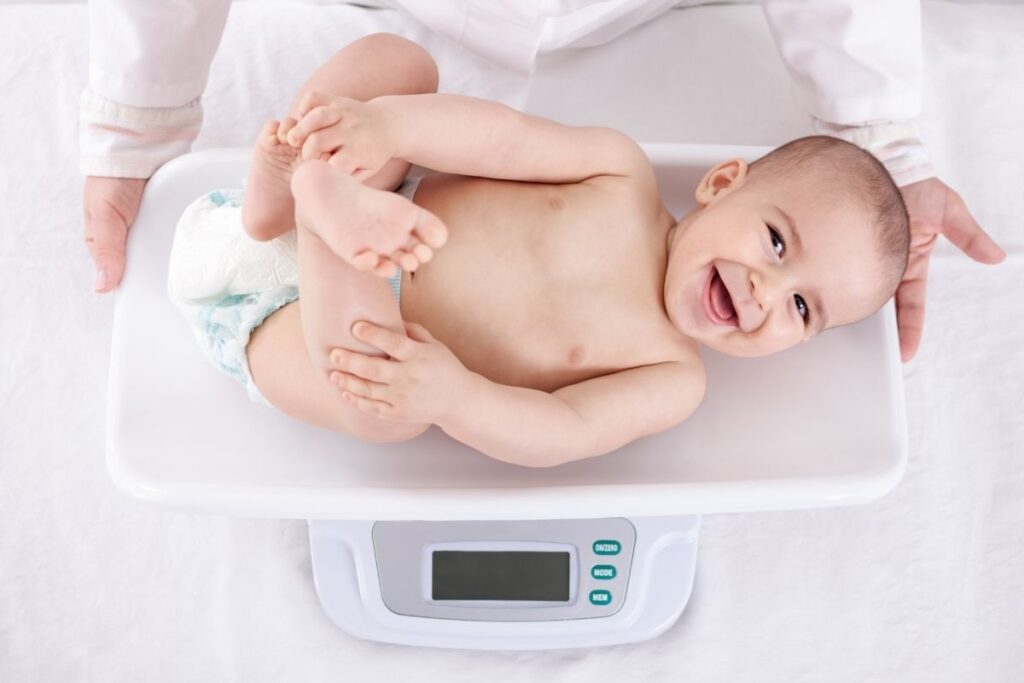
Breastmilk is enough for six months regardless of your baby’s size
There are some misconceptions about how your baby’s size and the need for solids. Let’s get those squared away now!
Myth #1 Breastmilk alone won’t fill a bigger baby
We know that breastmilk meets the needs of babies for the first six months of life regardless of their size. And we don’t feed babies solids based on their body weight.
At around five weeks of age, your breastfeeding baby reaches their peak daily milk needs of about 25-35 ounces (750-1035mls) milk. And this stays roughly the same until your baby starts solids at about six months. After this, your baby’s need for milk decreases. This is because growth and metabolic rate slows as they age, so they continue to need about the same volume of milk from 1 month to 6 months.
Myth #2 Adding solids to a breastfed babies diet will help with weight gain
Firstly, you need to know that breastfed babies gain weight rapidly in the first three months of life. After this, weight gain slows down. This is THE typical pattern of growth for babies. And why we use growth charts based on the growth patterns of breastfed babies and not formula-fed babies.
Secondly, if your baby isn’t gaining weight appropriately, adding low-calorie foods like baby rice, vegetables, or fruit won’t help. If your baby needs extra energy, breastmilk is a much better source.
What about this ‘window of opportunity for babies excepting flavour?
There’s no strong evidence for a window of opportunity for babies to accept new flavours (SACN, 2018). The good news is that your baby is already experiencing tastes and flavours via your breastmilk. Unlike formula, which has a consistent flavour, breastmilk constantly changes depending on what you eat.
Evidence shows that breastfed babies are more accepting of new foods during weaning because of this.
What about exclusive breastfeeding beyond six months?
Current guidelines recommend that solids are introduced at six months or 26 weeks of age. While delaying a week or two won’t make much of a difference, don’t wait much past 26 weeks. Because after this, your baby needs to develop their eating skills and complement the nutrients in your breastmilk with foods. The amount your baby eats doesn’t matter, but it’s essential you give your baby opportunities to practice feeding skills.
There’s also no evidence to support the theory that prolonged exclusive breastfeeding helps to reduce the risk of food allergy. We know it better to introduce potential allergens sooner rather than later.
There are many advantages of continuing to breastfeed alongside solids, however.
LEARN MORE: Step by step guide to introducing potential allergens during weaning
What are the best first foods for breastfed babies?
Just like formula-fed babies, there isn’t just ONE perfect first food. Many parents like to start with vegetables. However, it’s essential for ALL babies who are weaned at about six months to quickly move onto a broader range of foods, especially foods rich in iron.
Although breastmilk is low in iron, what is present is very well absorbed. However, iron stores are running low for all babies at about the six-months, and therefore, it’s important to prioritise iron-rich foods in the weaning diet.
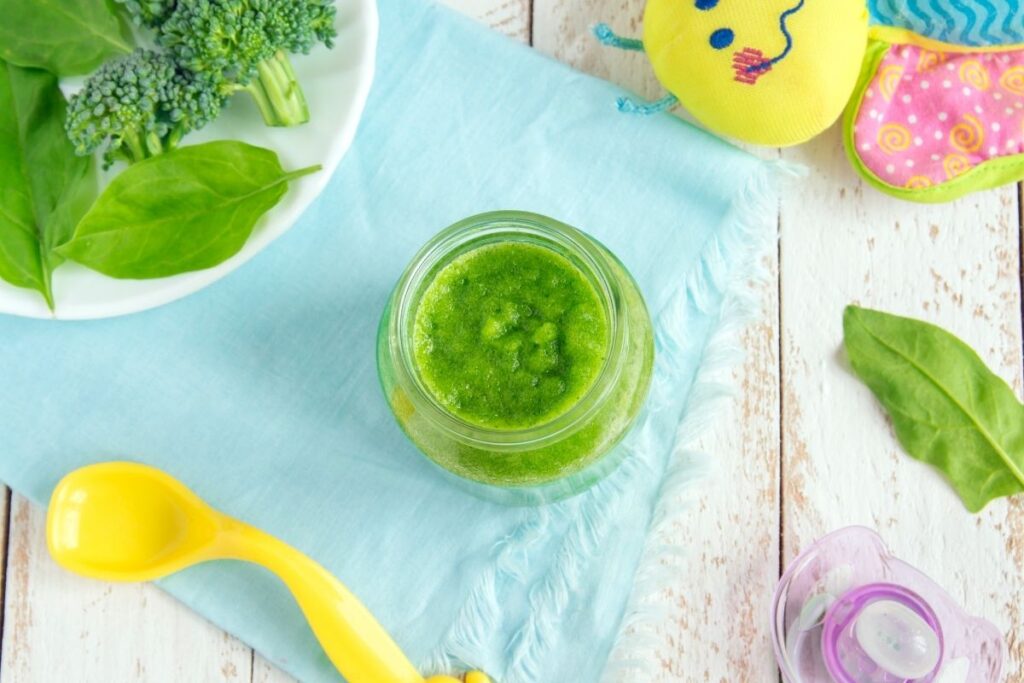
READ MORE: 9 Iron-rich foods you probably have in your kitchen already
How often should you breastfeed at six months?
Every mum and baby is different. Babies have different appetites. And mums have different breast storage capacity that has nothing to do with the size of their breasts.
The great thing about breastfeeding is that there’s no right or wrong way to do it. As long as your baby is growing and thriving, then keep doing what you’re doing.
And this won’t change when you introduce solids! You will keep breastfeeding your baby on demand.
What will our day look like when I introduce solids to my breastfed baby?
It’s easy to get caught up with complicated feeding schedules. In reality, when you make plans, your baby laughs!
Introducing solids alongside breastfeeding is simple!
You’ve already been breastfeeding your baby when they want it. Keep doing that!
When you’re ready to introduce solids, schedule one meal to start with.

Schedule this meal for:
- When your baby isn’t hungry-if they’re hungry, and they lack the patience needed to learn about eating. Plus, you don’t want them replacing milk with lower-calorie foods like vegetables or fruit. So, feed them their milk first.
- Alert-tired babies aren’t interested in learning new skills either.
- At your mealtime- it’s so beneficial for you to eat together. In reality, this might not be possible. Either way, you can join your baby at the meal even if it’s not your regular mealtime.
A typical day when introducing solids to a breastfed baby might go something like this:
6 am-breastfeed in bed
7 am -get up
9 am-breastfeed to sleep for a nap
10.30 am-Wake up and breastfeed
11.00am- Offer ‘lunch’
Breastfeed on demand as usual for the rest of the day
When should I offer my baby another meal?
When you’ve both gotten the hang of the first meal, schedule a second meal. And finally, a third. You’re aiming to offer three meals a day by about 7 months.
And you’ll notice that I said ‘offer’! It’s your job to offer meals on a predictable schedule. Your baby will decide whether and how much they eat (or not) at each of these times. You don’t have to wait until your baby eats a specific amount of food at each meal before offering another eating opportunity.
All the while, you’re breastfeeding your baby on demand. You’ll probably find yourself breastfeeding before meals (starter), as well as between meals (snacks) and after meals (dessert!) and at night.
MORE HELP: Here’s what a typical schedule might look like for a 7-9-month-old baby
How long a gap should I leave between solids and breastfeeding?
How long you leave between milk and solids is up to you. Some babies will eat their lunch even if they’ve just breastfed. Others won’t and will benefit from a gap between milk and solids. You’ll work out a routine that’s right for you. And expect this routine to evolve as you head towards your baby’s first birthday. How much your baby eats will continue to vary from day to day.
Some days your baby will want more milk and on others more food. Go with it.

READ MORE: Portion sizes during weaning
Will my milk supply decrease when my breastfed baby starts solids?
Yes, this is a normal part of your breastfeeding journey. Food will gradually start to displace breastmilk, and your supply will drop accordingly. You will make as much milk as your baby needs, provided you continue to breastfeed on demand and not limit your baby’s opportunities for feeding.
One of the many benefits of breastfeeding is that babies reduce their intake of breastmilk when they start solids to prevent overfeeding. Unfortunately, bottle-fed babies aren’t as good at tailoring their milk intake and may drink more milk than they need.
Some babies reduce the number of times they breastfeed as they eat more food. And some babies breastfeed at the same frequency but for shorter periods. With other babies, you mightn’t notice any change. Breastfed babies do a great job at regulating their milk intake on their own. So, as their intake of solid food goes up, their milk intake goes down. Trust in them, and you can’t go wrong.
So, does that mean I should introduce solids before or after breastmilk?
You might read that you should ALWAYS feed your baby milk before you feed them solid foods. But how does this work in reality?
Typically your baby will breastfeed when they wake up in the morning. Or they’ve been feeding throughout the night, in which case it’s hard to tell where the night ends and the day begins!
Then they might have breakfast. In that case, the milk came first, right?! But what if you feed them to sleep for their nap? That’s technically after breakfast. Does that mean you need to breastfeed them when they get up from their nap before you can give them lunch?
Honestly, don’t overthink it. Remember to offer meals on a flexible schedule and breastfeed on demand around those meals. There are many reasons to breastfeed, and nutrition is only one of them.
What happens when babies breastfeed ALL night and don’t want breakfast in the morning
That’s fine. Offer breakfast at the usual time (you don’t want to delay breakfast indefinitely waiting for them to get hungry), and leave it up to your baby whether to eat it or not. If they don’t eat it, that’s OK. Then move on with the rest of your day, feeding meals on a schedule and breastfeeding on demand!
If your baby feeds a lot overnight, you don’t HAVE to breastfeed them before offering breakfast. It’s OK to offer them breakfast when you get up.
As always, do what works best for you.
‘Poo changes’ when you introduce solids to your breastfed baby
Expect your baby’s poo to move from runny, yellow poo to something resembling an adult poo or a thick paste! And expect your baby’s poo to become much smellier – there’s always something to look forward to at the next stage, isn’t there?
It’s also quite common for babies to become constipated when they start eating more solid foods. Standard advice offered in online groups is to ‘stop solids’ and revert to just breastfeeding. But, this isn’t a helpful long-term approach. Stopping and starting solids after six months is confusing and may delay your baby’s progress. Instead, include foods in your baby’s weaning diet that help to keep things moving.
You’ll find ideas for foods that can help to prevent constipation during weaning here.
Is breastmilk more important than solids in the first year?
This is controversial. And you’ll get differing answers depending on your information source.
Breastmilk provides EVERYTHING your baby needs for the first six months. Milk continues to provide the majority of energy (calories) and nutrients when foods are first introduced.
To complement the energy a baby gets from breastmilk, and a 7-9-month-old baby needs an estimated 250kcals each day from food. However, this figure is an average, and babies have variable appetites and energy needs and should be encouraged to eat to appetite. Babies of this age will also need about 5.9g protein, 225mg calcium, 4.8mg iron and 1.4mg zinc from food each day to complement the nutrients in breastmilk (as well as the fat and carbohydrate and a range of other vitamins and minerals that their foods will provide) (First Steps Nutrition).
To complement the energy a baby gets from breastmilk, a 10-12-month-old needs about 450kcals from food. Again, this figure is an average, and babies will have variable appetites and energy needs and should be encouraged to eat to appetite. A 10-12-month-old needs about 9.7g protein, 325mg calcium, 5.8mg iron and 2.6mg zinc from their food each day (as well as the fat, carbohydrate and a range of other vitamins and minerals that their foods will provide. (First Steps Nutrition).
When should I introduce water to my breastfed baby?

Exclusive breastfeeding means not giving your baby any other foods or liquids. And breastmilk provides ALL the fluid your baby needs for about six months. However, when you start solids, it’s OK to offer your baby some sips of cooled, boiled water, preferably from a little open cup. There are three reasons for this:
- It creates the habit of drinking water.
- It helps your baby practice their mature sipping skills.

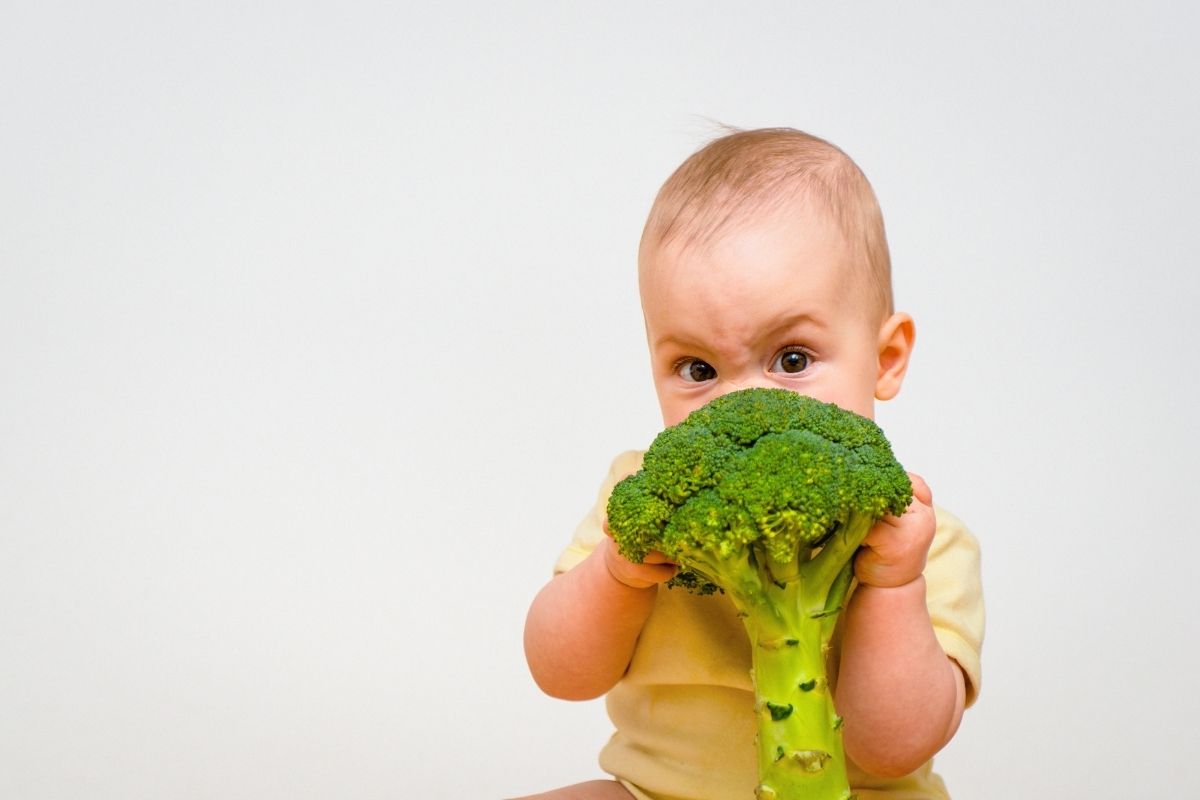
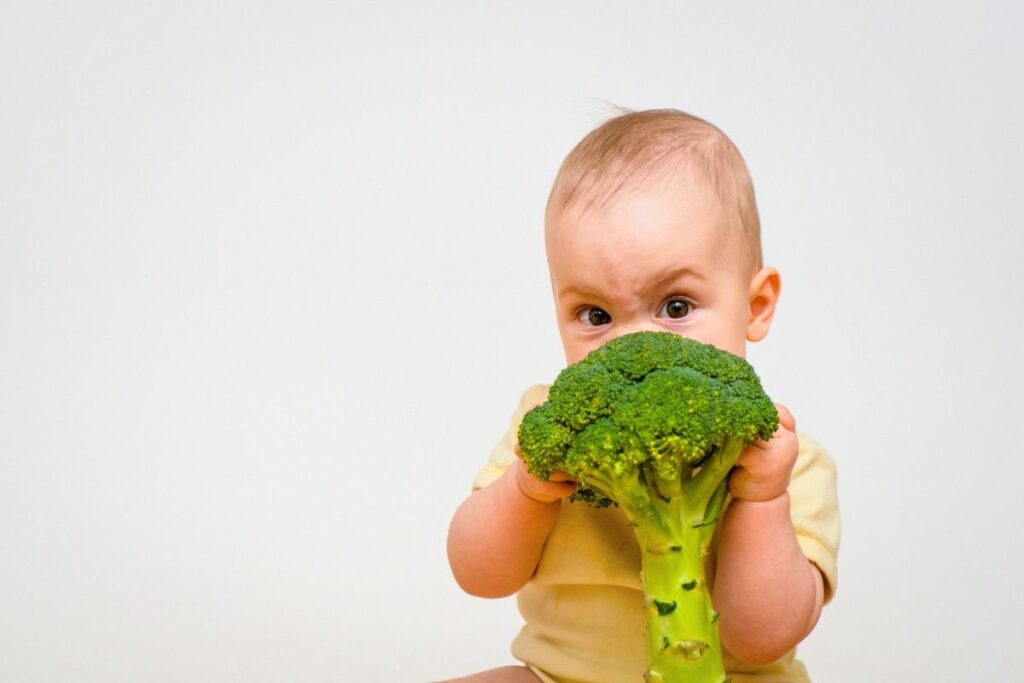



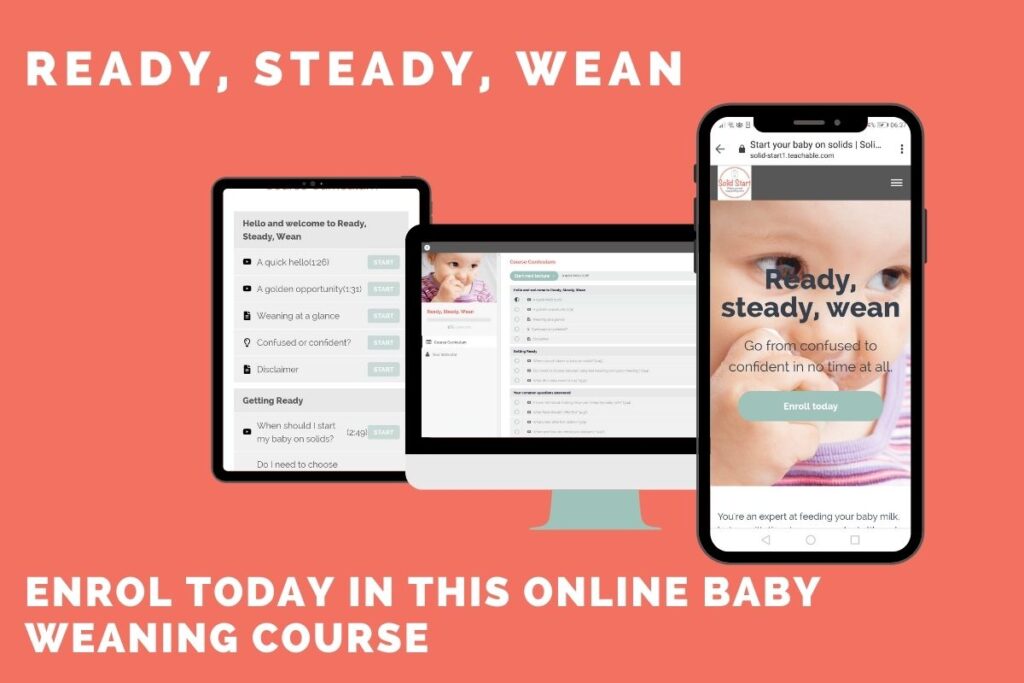
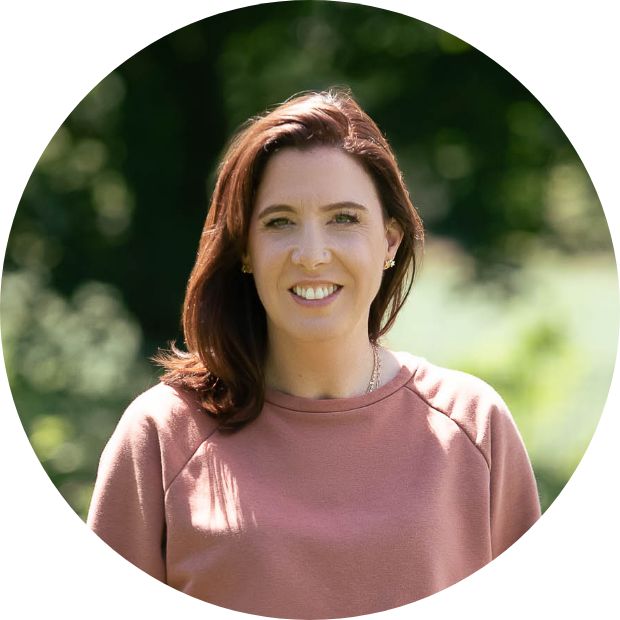

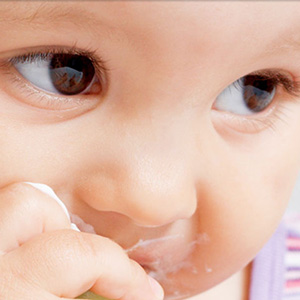


Thank you for acknowledging babies who nurse ALL night! My 9 month old loves food but still wants to breastfeed all night and this made me feel seen. I love your page. Thank you!
Thanks, Kate. They do sleep eventually!
Caroline do you have any advice for moms that breastfeed but have had to pump to keep up supply? When do you think one should stop pumping?
Thanks so much
Hi Layne. That depends on a lot of factors really such as why you’re pumping, what age your baby is, if you’re going back to work etc. Are you currently working with a lactation consultant?